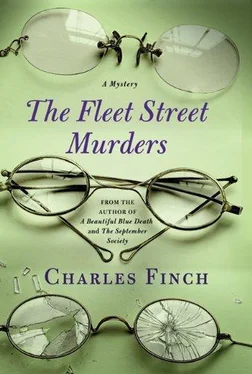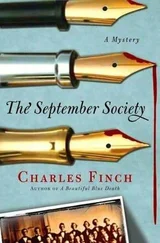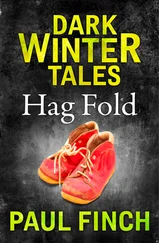Charles Finch - Fleet Street murders
Здесь есть возможность читать онлайн «Charles Finch - Fleet Street murders» весь текст электронной книги совершенно бесплатно (целиком полную версию без сокращений). В некоторых случаях можно слушать аудио, скачать через торрент в формате fb2 и присутствует краткое содержание. Жанр: Исторический детектив, на английском языке. Описание произведения, (предисловие) а так же отзывы посетителей доступны на портале библиотеки ЛибКат.
- Название:Fleet Street murders
- Автор:
- Жанр:
- Год:неизвестен
- ISBN:нет данных
- Рейтинг книги:5 / 5. Голосов: 1
-
Избранное:Добавить в избранное
- Отзывы:
-
Ваша оценка:
- 100
- 1
- 2
- 3
- 4
- 5
Fleet Street murders: краткое содержание, описание и аннотация
Предлагаем к чтению аннотацию, описание, краткое содержание или предисловие (зависит от того, что написал сам автор книги «Fleet Street murders»). Если вы не нашли необходимую информацию о книге — напишите в комментариях, мы постараемся отыскать её.
Fleet Street murders — читать онлайн бесплатно полную книгу (весь текст) целиком
Ниже представлен текст книги, разбитый по страницам. Система сохранения места последней прочитанной страницы, позволяет с удобством читать онлайн бесплатно книгу «Fleet Street murders», без необходимости каждый раз заново искать на чём Вы остановились. Поставьте закладку, и сможете в любой момент перейти на страницу, на которой закончили чтение.
Интервал:
Закладка:
“How do you do?” he asked Crook.
“Quite well enough, thank you.”
“I fear I may need to return to London. Only for two days or so-three days perhaps.”
Crook was astounded. “With scarcely a fortnight until the vote!”
“Call it two days. Less than forty-eight hours.”
“Mr. Lenox, I’ve never been so shocked in all my life!”
“It’s because of a murder.”
“Let there be twenty murders, see if I care! You cannot leave!”
“I’m aware of my duties here, but I feel I can still discharge them. What if I were to add another hundred pounds to our budget for advertising?”
“The town is pretty well covered.”
“My man, Graham, has been buying beer.”
“Not here,” said Crook, temporarily distracted.
“I thought it would look ill.”
“Because it’s my public house?”
“Well-precisely.”
“Be that as it may, you simply cannot leave. Think of all that they say about you being a creature of London, and caring nothing for our Stirrington-and as soon as you arrive you leave!”
Gradually, though, as Lenox convinced Crook of his seriousness and promised further funds for all the sundry expenses of a campaign, the bartender’s position altered. Promising that he would leave Graham in place, Lenox reached a compromise-he would leave that evening on the last train, stay in London for one day and one morning, and return in time to speak at Sawyer Park again on the second evening. He would be in London for something less than thirty-six hours.
“We’ll have to tell them you’re going to Durham to meet with county officials about the issues of Stirrington. That’s all.”
“We cannot lie,” said Lenox, frowning.
“Ha! Ha!” said Crook, coughing as he laughed. “You’ve been in politics a very short time! Make that face all you like, but lie we must, and lie we shall. Luckily Durham is a very impressive place to many of these voters, and they’ll like that you have the power already to meet with those who control the city. Roodle could never get in.”
“Well-if we must.”
“We must.”
For another ten minutes (by which time there were several disgruntled drinkers clattering their pint pots on the bar with meaningful strength) Crook and Lenox discussed the matter.
As a sort of final condition Crook said, “You must promise me that this afternoon and when you return, you will shake the hand of every person you meet on the way to and from your appointments.”
“Well-all right.”
“Promise me! It’s no easy thing.”
“I promise I shall speak to as many people as I possibly can. Surely I’ll miss some while I talk with others.”
“Well-yes,” said Crook begrudgingly. “Very well. Now you must knock at the door of my house. Nettie will walk you to the library. I’m afraid I won’t be able to come, Mr. Lenox.”
“No?”
“I’ve wasted enough time away from my business.”
Lenox went through the afternoon shaking every hand that would reach out to meet his and speaking to people with a sunny optimism he didn’t quite feel until he was hoarse. He impressed the town burghers at the library and earned the respect, if not the vote, of perhaps three-quarters of the severe-looking businessmen he met with that night. True to his word, he shook the hand of even the waiter who brought postprandial coffee into that meeting.
Even so, it must be owned: All the time his thoughts were bent toward London, toward Pierce and Carruthers, toward Dallington, Jenkins, and McConnell, and above all toward Lady Jane Grey, whom he hoped was still his engaged love.
Graham took him to the station.
“Don’t stint on the pints of beer!” Lenox said to his man. “Spend money where it must be spent!”
“I shall, sir.”
“Would you like me to take any messages back to London?”
“No, sir, thank you.”
“Did you pack my gray checked suit?”
“You’re wearing it, sir.”
“Ah-so I am.”
“Return quickly and safely, sir.”
The train began to move. “Good-bye, Graham! Conciliate Crook, if you can! Remember, money is no object!”
The detective turned into the train with a wave and found his empty compartment. It was something past midnight after a long, wearying day, yet as he felt the train gather pace beneath him and knew it was headed toward his home, he felt his heart lighten and his senses refresh themselves.
CHAPTER THIRTEEN
London.
In all its variety it seemed to put Stirrington out of existence, or at any rate out of thought. Lenox looked through the window of his phaeton and saw dustmen and shoeblacks darting among the traffic. The streetlamps were still lit at that early hour, but he had slept on the train and felt more excited than tired now. At eight o’clock Dallington and McConnell were coming to meet him, but before then he wanted to see Newgate Prison, the place where Hiram Smalls had died. According to the papers the warden there was a great advocate of abstinence and clean living (as almost by necessity a good warden must be) and preferred to begin the day early rather than end it late. Lenox hoped to find him at the prison, though it wasn’t past six yet.
It was modern times, now, 1867, and for some years the prison system had been subject to close scrutiny from Parliament. This was primarily because of a remarkable woman named Elizabeth Fry, who had died some twenty years before. In her life she had toured prisons such as Newgate and found herself profoundly shocked by the treatment of prisoners there, especially women prisoners-in particular because if a female prisoner had a child, that child often accompanied its mother to the prison and stayed there as long as the prisoner had to.
Only in the last decade or so had a comprehensive overhaul begun. Prisons now were by law better ventilated, served heartier food, endured less theft by the guards, and allowed prisoners time outdoors and with visiting family. It was a change Lenox was all in favor of, though his more conservative friends decried the money it meant spending on common criminals.
Those were prisons in general, though, not the most famous prison in the world. For so Newgate was.
It stood at the corner of Newgate Street and Old Bailey, near the primary criminal court of London. Though it had some architectural distinction, its dark walls and low roof gave it an ominous aspect, as if the building had learned its purpose and rushed to take on an apt appearance. It had housed any number of famous people: Jack Sheppard, the most infamous thief of the previous century, who had managed to escape three times before he was finally hanged; Daniel Defoe, who wrote Robinson Crusoe; the playwright Ben Jonson, Shakespeare’s rival; and the pirate Captain Kidd. Gruesomely, most public hangings in London had for more than three-quarters of a century been done outside of Newgate’s walls, where the prisoners could hear the crowd’s blood-thirsty cries. Although there was now a widely embraced movement to stop such barbarity, one Lenox suspected would lead to the end of the practice.
The detective had several times in his career occasion to visit the prison and always left feeling slightly desolate. It was improved now, to be sure, but still had the eerie feeling of a place where mayhem and death are almost as prevalent as their constriction. A place of high walls, little light, and constant sorrow.
Also a crowded one. As Lenox entered by the main gate and asked the bailiff if he might have an audience with the warden, signs of overcrowding were everywhere. It was another marker of the times. In previous eras punishment had been largely corporal, but now that men and women were staying in prison for long stretches instead, space came at a premium. The cells Lenox passed on his way up to the warden’s office were all full by one or two too many, and he marveled that Hiram Smalls had received his own space.
Читать дальшеИнтервал:
Закладка:
Похожие книги на «Fleet Street murders»
Представляем Вашему вниманию похожие книги на «Fleet Street murders» списком для выбора. Мы отобрали схожую по названию и смыслу литературу в надежде предоставить читателям больше вариантов отыскать новые, интересные, ещё непрочитанные произведения.
Обсуждение, отзывы о книге «Fleet Street murders» и просто собственные мнения читателей. Оставьте ваши комментарии, напишите, что Вы думаете о произведении, его смысле или главных героях. Укажите что конкретно понравилось, а что нет, и почему Вы так считаете.












